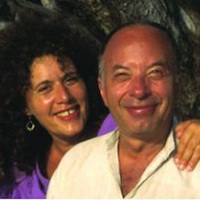Anger can be an effective expression of passion for justice and fairness, for basic rightness, for what is appropriate and humane.
But anger can also be like a single match that can burn an entire forest, causing tremendous damage and hurt. It causes wars, leads to greed and self-deception. The fallout can be huge and, invariably, we have no control over the repercussions.
There is a lot of anger flying around right now with political warring over guns, economic cut backs, and the continuing job crisis. But we needn’t let anger rule our system, as seen in Nelson Mandela’s response to Bill Clinton soon after Mandela’s release. Clinton asked him if he was angry the day he walked away from twenty-seven years in jail. “Surely,” Clinton said, “You must have felt some anger?” Mandela agreed that, yes, alongside the joy of being free, he had also felt great anger. “But,” he said, “I valued my freedom more, and I knew that if I expressed my anger I would still be a prisoner.”
Although we may have a right to be angry, retaliation just gets us into further negativity. For Mandela, as for all of us, getting angry is playing the same game, and results in the catchphrase, ‘two wrongs don’t make a right.’
As Michael Beckwith says in our book, Be the Change: “Rev James Lawson, who was a cohort of Dr. Martin Luther King, shared with me an experience when he and Dr. King were sitting in an auditorium and a man came up and said to Dr. King, ‘Are you MLK Jr.?’ When he said yes the man spat on him. Dr. King took a handkerchief, took the spittle off of his suit, and handed it back to the man saying, ‘I think this belongs to you.’ He didn’t hit the man, he didn’t cuss the man out, he didn’t say how dare you, he had this ability to just be in the moment.” Or, psychotherapist Deepesh Faucheaux says, Ducks don’t do anger. Ducks fight over a piece of bread and then they just swim away.
In its passion, anger pushes away, condemns, and makes everything wrong except itself.
Our heart goes out of reach and we lose touch with our feelings. There’s no compromise, no chance for dialogue, just I am right and you are wrong. And yet we are the ones who suffer the most, particularly from the affects of anger within our own minds, hearts and bodies.
Trying to eradicate anger is like trying to box with our own shadow: it doesn’t work. Getting rid of it implies either expressing it and creating untold emotional damage, denying its existence, or repressing it until it erupts at a later time. Making friends with anger is essential. This is growing roses out of rotting compost, transforming fire into constructive action, using the passion but without the destruction.
We need to go beneath the anger to see what hurt, longing or fear is trying to make itself heard. It is often a big cry for love, as we have lost our connectedness with each other and are trying to find a way to reconnect. Or there can be feelings of rejection, grief, or loneliness. So if we repress anger or pretend it isn’t there then all these other feelings get repressed and ignored as well.
By naming and recognizing the many faces of anger, we can stay present with it as it arises, keeping the heart open, breathing, watching emotions come up and pass through. Meditation is the best way to do this as it creates the space to step back from the passion, breathe, and objectively see what is at the root of the feeling. Often we realize it has little to do with another person but more to do with our expectations and needs.
Meditation not only invites us to witness anger, but also to get to know and make friends with ourselves. It gives us a midpoint between expressing anger and repressing it, a place where we can be aware of our feelings and not be swept away by them. Meditation is not going to make all our challenges go away but it does enable us to rest in an inclusive acceptance of who we are.
******
Join our Be The Change Meditate e-Conference that will uplift and inspire you. 30 eclectic meditation teachers, including Marianne Williamson, Congressman Tim Ryan, author of Mindful Nation, Sharon Salzberg, Robert Thurman, Gangaji, Joan Borysenko, Seane Corn, neuroscientist Richie Davidson who proves how meditation affects the brain, Roshi Joan Halifax, Tara Stiles, and us, Ed and Deb Shapiro, authors of the conference companion book, BE THE CHANGE: How Meditation Can Transform You and The World. Expect your life to never be the same again!
For more information: www.edanddebshapiro.com
Like elephant meditation on Facebook.
Ed: Kate Bartolotta






Read 5 comments and reply